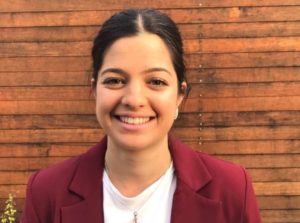
Flinders teaching alumni earn recognition for excellence, Goyder Institute scientists work with citizen scientists in the Coorong, and Flinders joins an Australian-Indian water research centre.
Flinders alumni scoop teaching awards

Flinders had 12 Alumni take awards at the annual Teachers Day Awards, with current Flinders student Nikki Asikas (BArtsSc ’19 and Master of Teaching student) winning the Outstanding Graduate award, which she says came as a huge surprise. “I had not actually realised the extent of the positive impact that I have made on my colleagues and students at both my placement schools over the last two years,” she says.
Bioblitz teaches citizen scientists about the Coorong
Scientists within the Goyder Institute for Water Research at Flinders will be working with citizen scientists for a “Coorong Bioblitz” during Phase 1 of the Healthy Coorong Healthy Basin Program (HCHB).
The collaborative venture during November marks the 35th anniversary of the Coorong and Lakes Alexandrina and Albert wetland becoming an internationally recognised Ramsar Site. Researchers use the pilot Coorong Bioblitz to inform community participants to learn about research activities that contribute to the Coorong’s health, including identifying which birds call the Coorong home, why macroinvertebrates (and other creepy crawlies) are so important to the health of the system, what changes they hope to see within the aquatic plant communities as the health of the system improves, what qualities the water and sediments need to have to sustain a healthy ecosystem for plants, waterbirds and fish, and how fish populations are monitored in the Coorong.
Goyder Institute researchers Dr Qifeng Ye (SARDI), Professor Sabine Dittmann (Flinders University) and Associate Professor Luke Mosley (the University of Adelaide) also recently provided video footage of their HCHB research for The Science and Citizens of the Coorong film, with Professor Michelle Waycott (Department for Environment and Water and the University of Adelaide) narrating the science section.
The Science and Citizens of the Coorong film was developed by the Murraylands and Riverland Landscape Board, which screened it during National Science Week 2020.
This project is part of the Department for Environment and Water’s Healthy Coorong, Healthy Basin Program, which is jointly funded by the Australian and South Australian governments.
Collaborative trans-national approach to water security
Flinders University has joined Western Sydney University and six other Australian universities to launch the new Australia India Water Centre, working with 15 universities and research institutions in India.
With a common goal of addressing the critical challenge of water security, sanitation, and water management and distribution in a warming climate, the consortium will foster research collaboration, education, training, and capacity-building.
At a virtual ceremony, delegates from Australia and India commemorated the official opening of the centre with Ministers from the Australian and Indian Governments, Vice-Chancellors and officials from the participating universities, and guests.
Because Australia and India face many common issues around water security and sustainability in often hot and dry climates, the new water centre will develop a targeted program of knowledge exchange, training opportunities, and transdisciplinary education pathways, to help provide safe, clean water to millions of people in Australia, India, and neighbouring regions.
The Australia India Water Centre inception follows the signing in November 2019 of a joint Memorandum of Understanding between the Indian Central Ground Water Board and partners in the MARVI project (Managing Aquifer Recharge and Sustaining Groundwater Use through Village-level Intervention) that has been adopted in seven states in India with 20,000 villages actively participating.

